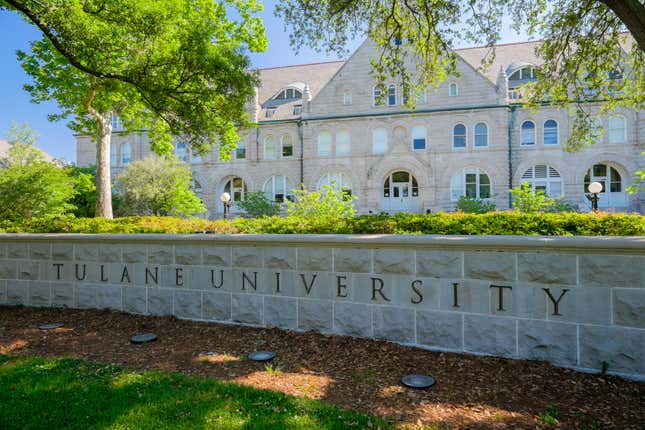
The Tulane University School of Medicine was placed on probation last week by a national accreditation board due to allegations of racism and discrimination within its graduate program.
According the The Lens, the Accreditation Council for Graduate Medical Education (ACGME) informed the school’s dean, Lee Hamm, of the decision on July 2. In a response sent to the ACGME, Hamm said that “given issues of confidentiality, we are limited in the information we can share about the ACGME’s decision,” but added that two of the primary areas of concern were “oversight of our [graduate medical education] programs,” and “improving our learning and working environments, including enhancing equity, diversity, and inclusion.”
The ACGME began making visits to the school last spring following the suspension of Dr. Princess Dennar, a Black woman who was director of the school’s internal medicine-pediatrics residency.
From the Lens:
She accused the School of Medicine of retaliating against her for a federal lawsuit she filed in October 2020, which alleged racial and gender discrimination against her and her residents. Dennar said that her program was disproportionately composed of women of color.
The university denied the allegations, saying that she was suspended because of a review triggered by a warning from the ACGME. Dennar contested that claim in a letter to Tulane President Michael Fitts, arguing that other programs had also been given warning statuses, but the review policy was timed specifically to target her. The ACGME review in question is private.
Following calls from alumni, students, and faculty for more transparency in the suspension and in some cases, the removal of Hamm as dean. Hamm offered to reinstate Dennar, conditioned on her receiving “executive coaching, additional administrative support… and on-going [sic] oversight and guidance.”
Dennar declined the offer, saying that the additional oversight was just an effort to deflect blame from the school’s leadership. Dennar released a statement addressing the move by the ACGME.
‘“While I deeply empathize with the students, residents, fellows, and many of my colleagues who may be unfairly impacted by Tulane’s probationary status—and I continue to offer my support to them—I believe that ACGME’s action is a positive step toward addressing concerns raised by myself and others about racism, sexism, and retaliation at Tulane University,” her statement read.
John Combes, the chief public policy officer of the ACGME, told the Lens that probation is one of several steps the board can take against a school. The first step is a warning notifying the school what they need to fix. “Then there’s probationary accreditation, which is much more serious,” Combes told the Lens. Probation prevents a school from creating, expanding, and applying for new programs. “It is really a first-step warning that they are in jeopardy of losing their accreditation if they don’t correct it by the next review cycle,” Combes added.
Hamm wrote in his July 2 email that the school has already outlined a plan to address the concerns that resulted in the probation. He said a task force will be formed to handle “reports of mistreatment and unprofessionalism of any kind.” Hamm added that the school will begin working to reduce to clinical workloads of residents, as one of the primary concerns raised by the discrimination complaints were unequal workloads.

